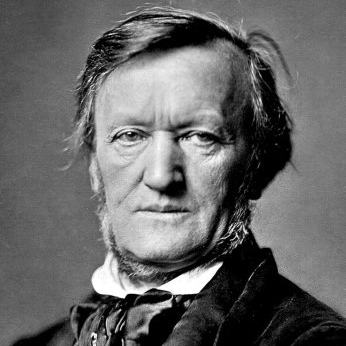click to dowload our latest edition
CLICK HERE TO SUBSCRIBE TO OUR NEWSLETTER


Published
7 years agoon
By
adminVIC ALHADEFF
Can one listen to Wagner with a clear conscience? Should one play his music in Israel? Can a composer who died in 1883 – six years before Hitler was born – be damningly identified with his country’s genocide of the Jewish people?
And if the answer to that last question is in the affirmative, does it trump the insistence by music aficionados that no philharmonic orchestra that takes itself seriously – and no study of music – can be complete without Wagner?
These and other vexed issues underpin a controversy which remains unresolved in the Jewish Diaspora and particularly Israel, where an unofficial ban on Wagner endures seven decades after the death camps were liberated.
So, who was Wagner? He is described as “the most volcanically controversial figure in the history of music”. Conventional wisdom insists that Wagner was a genius whose compositions were so seminal and innovative that ignoring them renders any appreciation of classical music congenitally flawed.
Yet, he has two strikes against him – he was viciously anti-Semitic and his music and writings were embraced by Hitler as validation of his own worldview. Hitler has been quoted as saying: “Whoever wants to understand National Socialist Germany, must know Wagner… Wagner’s line of thought is intimately familiar to me. At every stage of my life I come back to him.”
Wagner’s music was a feature of Nazi newsreels and major occasions. One of his vile statements – “The Jew is the plastic demon of the decline of mankind” – is included in the Nazi film “The Eternal Jew”, while an extract of his Die Meistersinger accompanies Nuremberg rallies in Leni Riefenstahl’s anti-Semitic film Triumph of the Will.
Hitler insisted that the rallies open with performances of Die Meistersinger, in 1933 issuing 1 000 tickets to Nazi officials, while an extract from Wagner’s Ring Cycle was the main anthem of Nazi mourning.
In addition, Hitler alluded to Wagner’s Parsifal in a chilling 1939 speech prophesying the destruction of the Jews, and he wrote in Mein Kampf: “At the age of 12, I saw… the first opera of my life, Lohengrin (by Wagner). In one instant I was addicted. My youthful enthusiasm for the Bayreuth master knew no bounds” – so much so that every summer from 1933 to 1939 he presided over the Bayreuth Festival (a Wagner celebration), greeting the audience from his balcony.
The Wagner estate, Wahnfried, became his second home, and Wagner virulently attacked Jews in a pamphlet titled Jewishness in Music.
Israel’s unofficial ban predates the State. In the aftermath of Kristallnacht a member of the board of the Palestine Philharmonic Orchestra – forerunner of the Israel Philharmonic – asked conductor Arturo Toscanini to remove Die Meistersinger from the programme. Wagner has been played on radio and TV since then, but not in concert halls – with occasional contentious exceptions.
About to perform an encore in 1981, Zubin Mehta invited those who wished to do so to leave the hall and conducted an extract from Wagner’s Tristan and Isolde. Holocaust survivor Ben-Zion Leitner, who had fought in Israel’s wars, strode to the front, exposed his battle scars and shouted: “Play Wagner over my body!”
Mehta has tried to play Wagner several times, while Daniel Barenboim, who has conducted at Bayreuth, elicited a similar outcry when he conducted the prelude to Tristan and Isolde, and an attempt by the Israel Wagner Society to hold a concert at Tel Aviv University saw the university withdrew permission, as did a city hotel.
Opponents of the ban argue that composers Chopin, Liszt and Mussorgsky all made comments that could be regarded as anti-Semitic, while Tchaikovsky described Benjamin Disraeli as “that detestable Jew”.
Bizarrely, Theodor Herzl was captivated by Wagner. “Heine tells us he heard the flapping of an eagle’s wings… when he wrote certain verses,” Herzl wrote. “I too believe I heard a fluttering of wings while I wrote that book.
“I worked on it every day to the point of exhaustion. My only recreation was listening to Wagner’s music… particularly Tannhäuser, an opera I attended as often as it was produced.
“Only on the evenings when there was no opera did I have doubts as to the truth of my ideas.” The book was The Jewish State.
Israelis have generally made peace with Germany; it is a staunch ally, it has paid billions in reparations and Israelis drive German cars. But discussion of Wagner cannot be reduced to focusing only on the quality of his music.
Dachau survivor Uri Chanoch says Wagner provided ideological infrastructure for Hitler. Ultimately, the issue is the power of the symbolism that intertwines and identifies Wagner with Hitler and his pivotal presence in the Nazi psyche. For that reason, the unofficial ban should endure.
Vic Alhadeff is Chief Executive Officer of the NSW Jewish Board of Deputies in Sydney, Australia, and former chief sub-editor of The Cape Times. South African playwright Victor Gordon’s new play, You Will Not Play Wagner, premiered in Sydney last week.
